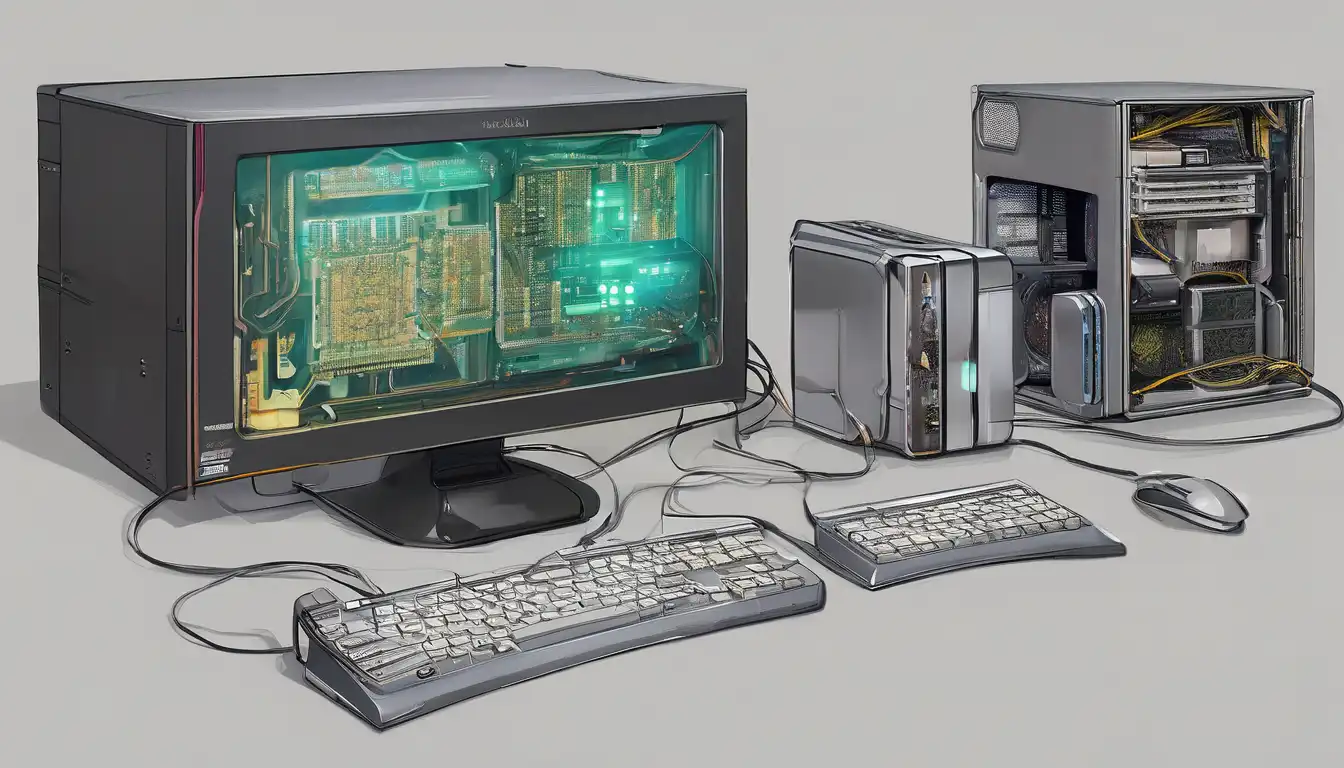Revolutionary Advances in Computer Hardware Technology
The landscape of computer hardware is undergoing unprecedented transformation, with innovations emerging at an accelerated pace. From quantum computing breakthroughs to AI-optimized processors, the latest developments are reshaping how we interact with technology. These advancements promise not only enhanced performance but also greater energy efficiency and revolutionary capabilities that were once confined to science fiction.
Next-Generation Processor Technology
Processor manufacturers are pushing the boundaries of computational power with remarkable innovations. The latest CPUs feature advanced architectures that deliver significant performance improvements while maintaining energy efficiency. Companies like Intel and AMD are introducing processors with higher core counts, improved thermal management, and specialized AI acceleration capabilities. These processors are designed to handle complex workloads, from scientific simulations to real-time data analysis, with unprecedented speed and precision.
One of the most exciting developments is the integration of neural processing units (NPUs) directly into consumer-grade processors. This integration enables on-device AI processing, reducing reliance on cloud services and enhancing privacy. The latest processors also feature improved security measures, including hardware-level protection against emerging cyber threats. For those interested in building their own systems, understanding processor selection criteria has never been more important.
Memory and Storage Breakthroughs
The memory and storage sectors are witnessing revolutionary changes that address the growing demand for faster data access and larger capacity. DDR5 memory technology has become mainstream, offering significantly higher bandwidth and improved power efficiency compared to previous generations. These advancements are crucial for applications requiring massive data throughput, such as video editing, gaming, and scientific computing.
Storage technology has seen equally impressive innovations, with PCIe 5.0 SSDs delivering read and write speeds that were unimaginable just a few years ago. The latest storage solutions feature:
- NVMe 2.0 protocol support for enhanced performance
- Multi-layer cell technology increasing storage density
- Improved endurance ratings for longer lifespan
- Advanced error correction mechanisms
These storage innovations are particularly beneficial for professionals working with large datasets and demanding applications. The evolution of storage technology continues to redefine what's possible in data management and access speeds.
Graphics and Display Technology Evolution
Graphics processing units (GPUs) have evolved beyond their traditional role in gaming and graphics rendering. Modern GPUs now serve as powerful computational engines for AI training, scientific research, and complex simulations. The latest graphics cards feature ray tracing acceleration, AI-enhanced upscaling, and real-time rendering capabilities that create photorealistic environments.
Display technology has kept pace with these GPU advancements, with high-refresh-rate monitors, 8K resolution support, and advanced HDR implementations becoming more accessible. The integration of variable refresh rate technology and low-latency modes ensures smooth, responsive visual experiences across various applications. For gamers and content creators, these developments represent a quantum leap in visual fidelity and performance.
Quantum Computing and Specialized Hardware
While still in its relative infancy, quantum computing represents one of the most promising frontiers in hardware technology. Companies are making significant progress in developing stable quantum bits (qubits) and error correction mechanisms. These advancements bring us closer to practical quantum computing applications in cryptography, drug discovery, and optimization problems.
Specialized hardware accelerators are also gaining prominence, with dedicated chips designed for specific tasks like cryptocurrency mining, AI inference, and edge computing. These specialized components offer superior performance and efficiency for their target applications compared to general-purpose processors. The trend toward specialized hardware reflects the growing recognition that different computational tasks require optimized architectures.
Cooling and Power Management Innovations
As hardware components become more powerful, effective cooling solutions have become increasingly critical. Advanced cooling technologies, including liquid cooling systems, vapor chamber designs, and phase-change materials, are now common in high-performance systems. These solutions maintain optimal operating temperatures while minimizing noise levels, ensuring stable performance under heavy loads.
Power management has seen similar innovation, with more efficient power delivery systems and intelligent power distribution mechanisms. Modern power supplies feature higher efficiency ratings, modular designs for better cable management, and advanced protection circuits. These improvements contribute to overall system stability and energy conservation, aligning with growing environmental concerns.
The Future of Computer Hardware
The trajectory of hardware innovation points toward even more integrated and intelligent systems. We're seeing the emergence of neuromorphic computing, which mimics the human brain's neural structure, and photonic computing, which uses light instead of electricity for data transmission. These technologies promise orders-of-magnitude improvements in speed and efficiency.
Another exciting development is the integration of hardware and software through machine learning optimization. Systems are becoming increasingly adept at self-optimization, automatically adjusting performance parameters based on usage patterns and environmental conditions. This intelligent adaptation represents a significant step toward more responsive and efficient computing environments.
The continued miniaturization of components, combined with new materials like graphene and carbon nanotubes, suggests that hardware innovation will continue to accelerate. As these technologies mature, they'll enable new applications and capabilities that we can only begin to imagine. For those keeping pace with these changes, staying informed about emerging hardware trends is essential for making informed technology decisions.
The latest innovations in computer hardware technology are not just incremental improvements but fundamental shifts in how we approach computation. From AI-optimized processors to quantum computing breakthroughs, these developments are setting the stage for a new era of technological capability. As these technologies continue to evolve, they'll undoubtedly transform industries, enable new applications, and redefine what's possible in the digital age.
